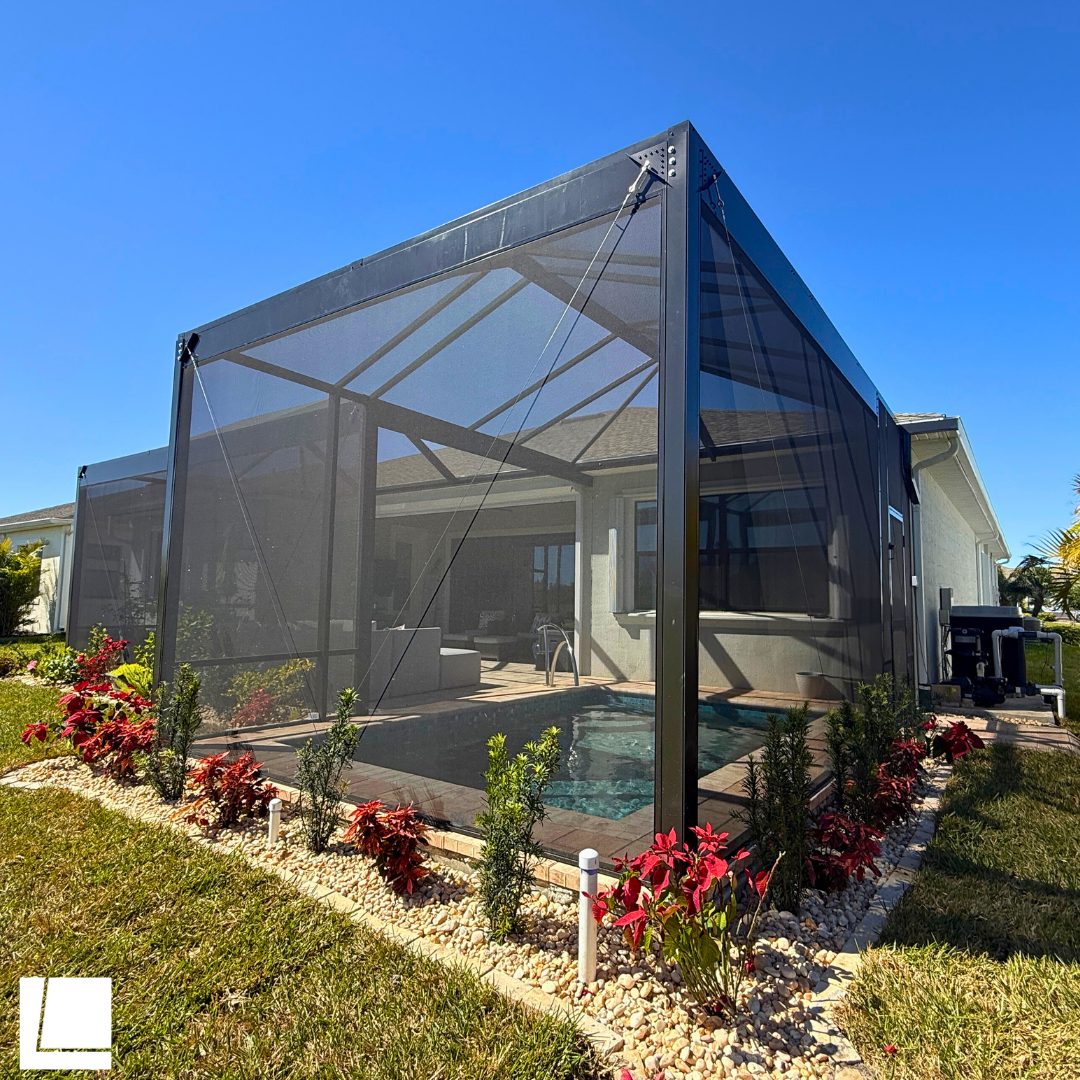A pool screen enclosure is one of the best ways to keep pests, debris, and harsh weather out of your pool area — but what happens when the enclosure itself is damaged? Homeowners often ask:
The answer depends on your policy, the cause of damage, and how your structure is classified. This updated guide breaks down everything Florida homeowners need to know — including what insurance typically covers, what it doesn’t, and how to file a claim successfully.
Homeowners insurance may cover damage to a pool screen enclosure if the cause is a covered peril like wind, fallen trees, or accidents. Insurance does not cover normal wear and tear, aging screens, or damage caused by lack of maintenance. Coverage also depends on whether your enclosure is classified under Dwelling Coverage or Other Structures Coverage in your policy.

Most policies protect your main home under Dwelling Coverage and detached additions under Other Structures Coverage. Pool enclosures can fall into either category, depending on your insurer and how the enclosure connects to your home.
If your pool enclosure is physically connected to your home, it may be considered part of the dwelling.
This classification applies when:
Why it matters:
Dwelling coverage usually offers higher limits, meaning more potential protection for repairs.
If your enclosure is free-standing, your insurer may classify it as an “other structure,” similar to:
Why it matters:
Other structures often carry lower coverage limits, sometimes only 10% of your dwelling coverage.
Damage coverage depends entirely on the cause of loss. Here are the most common scenarios:
Florida homeowners frequently face storms, hurricanes, hail, and high winds. Most policies include coverage for storm-related damage — but there are exceptions.
Covered perils may include:
✔ Wind damage
✔ Hail
✔ Fallen branches
✔ Hurricane debris (depending on your policy)
Not typically covered:
✘ Flooding
✘ Storm surge (requires flood insurance)
✘ Hurricane deductibles (may apply separately)
Insurance often covers unexpected accidents, such as:
If an identifiable event caused the damage, you’re more likely to get approved.
This includes:
Insurance doesn’t cover gradual damage.
If your insurer determines the damage came from:
…your claim can be denied.
Follow these steps to maximize your chance of approval:
Timely reporting speeds up processing and avoids dispute over when damage occurred.
Take clear photos and videos of:
Also gather:
An insurance adjuster will inspect the enclosure and assess the cause and extent of damage.
Know your limits and deductibles — especially hurricane deductibles, which can be significantly higher.
Many policies cap “other structures” coverage at 10% of your dwelling amount.
Storm-related claims in Florida may have separate deductible structures.
If you’ve built a premium enclosure, consider adding it as scheduled property for better protection.
Regular care helps avoid denied claims and extends the lifespan of your enclosure.
Only if the damage is caused by a covered peril such as wind, hail, or a falling object. Wear and tear is not covered.
Usually yes — but hurricane deductibles apply, and some policies exclude screen mesh.
It depends on whether the enclosure is attached to the main dwelling.
Insurance does not cover rescreening due to age, deterioration, or maintenance-related issues.
Damage caused by neglect, corrosion, old age, and unmaintained landscaping.
Understanding your insurance policy helps you make informed decisions and avoid unexpected out-of-pocket repairs. If your enclosure has been damaged or you’re looking to upgrade, our experts can help.
Schedule your consultation using our online contact form, or speak with a member of our team at (321) 652-1078.
Your dream enclosure is just one call away.
We're excited to learn more about your needs and provide you with a personalized quote. Please fill out the form, and our team will get back to you with a detailed estimate to kickstart your project.